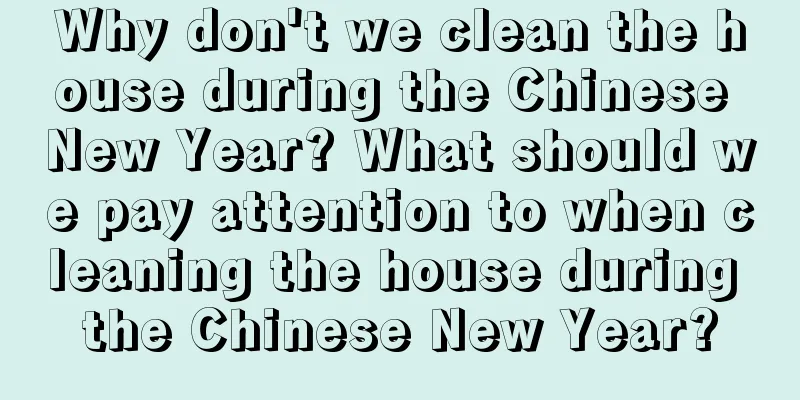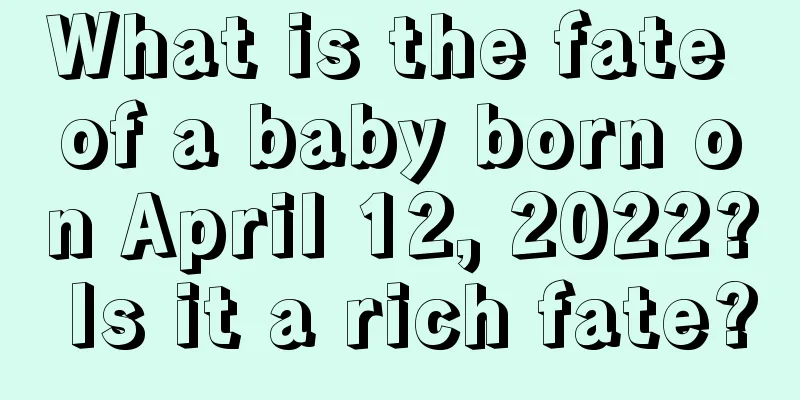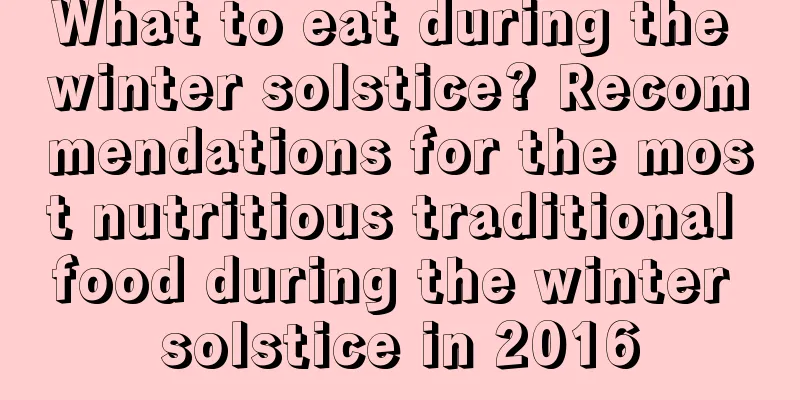Customs of celebrating Qingming Festival in various places in 2019

|
Qingming Festival has always been an important festival in my country. From ancient times to the present, many different Qingming Festival customs have emerged, and they vary across the country. So what are the customs of celebrating Qingming Festival in different places? Let’s take a look at it together below. Customs of celebrating Qingming Festival in various places in 2019 Hainan Hainanese people have the folk tradition of reciting ancestral teachings and clan rules when they worship their ancestors during the Qingming Festival. Fu Cechao, president of the Hainan Intangible Cultural Heritage Research Association, said that all Han people in Hainan are immigrants from the mainland. Before the Tang Dynasty, about 20,000 Han people moved to Hainan, about 100,000 people moved in during the Song Dynasty, and the number surged to more than 2 million during the Qing Dynasty. There are more than 100 surnames that have entered Qiong, and more than 300 ancestors who have entered Qiong. In order to commemorate the ancestor who came to Qiong, later generations built "ancestral temples" in various places and held sacrificial activities during the Qingming Festival. During these sacrificial activities, there is often eight-tone accompaniment and chanting of sacrificial texts to commemorate the merits of the ancestors who came to Qiong. Qingming Festival "During the folk sacrificial process, people also recite ancestral teachings and clan rules, and these sacrificial texts, ancestral teachings, and clan rules are all wonderful songs." Fu Cechao recited a small part of the Fu clan's three-character classic to reporters, "Love the motherland, be filial to parents, be friendly to brothers, be harmonious with husband and wife, be loyal to relatives, be united, be friendly with neighbors, and be cautious in making friends..." Listening to these ancestral teachings songs today, they still have educational significance. When Hainanese people visit graves, they offer sacrifices such as pigs, geese, fish, cakes and fruits, and burn incense to pray for the deceased. Some residents with the same surname also catch pigs and sheep and offer sacrifices to the ancestor's tomb, praying for the prosperity of their descendants. There are two types of ancestor worship during Qingming Festival. The first is to worship "one's own ancestors". One or several households place "three animals", dry rice and other offerings in front of the ancestor tablets at home, and everyone kneels down to worship. Later, in order to offer sacrifices to the "ancestors", dozens or hundreds of households would form groups, and all clansmen with the same surname would participate. Bring the prepared offerings to the ancestors' graves, clear the weeds, and add new soil. Shanxi There is an old folk song in Shanxi that goes "The drizzle on Qingming Festival makes people sad, the wild flowers are blooming in the vast expanse, offerings are in hand and shovels are on shoulders, all for adding soil to the ancestors' graves." It vividly summarizes the mood of people at that time and the characteristics of tomb sweeping. In spring, people often repair their houses to prevent leaks during the summer rains. The living are associated with the dead, and the graves in the fields often collapse due to wind and rain. The most distinctive feature of visiting graves during the Qingming Festival is to remove the weeds on the graves and raise and strengthen the graves with new soil. This is usually called renovating the tomb, which expresses the children and grandchildren's grief for their ancestors. In the southern part of Shanxi Province, no matter whether the people are rich or poor, both men and women will go to the graves to show that all descendants are remembering their ancestors. In the northern region, visiting graves is mostly done by men, while women generally do not visit graves. In Datong, Pingyao and other places, according to the old custom, women would cry loudly outside the gate in the evening of that day, and "the whole village would be filled with wailing cries, and all that could be heard was sadness." In most places in southern Shanxi, people do not burn incense or burn paper when visiting the graves. Instead, they hang paper money and other items on the graves. There is a saying that "the graves are all white on Qingming Festival." The reason is that it is customary to ban fire during the Cold Food Festival, and the Qingming Festival falls during the Cold Food Festival. However, in most places in northern Shanxi, all paper money and other items must be burned, because the reason is that if they are not burned completely, they will not be passed on to the ancestors. In places like Datong, people are accustomed to visiting graves during the day and burning paper money and silk at home at night. In Hequ and other places in northwest Shanxi, the old custom is to bring wine and food to the ancestral graves. After offering sacrifices to the ancestors, they eat and drink in the cemetery, which means drinking and eating together with the ancestors. In Wenxi and other places in southern Shanxi, people roll date-embedded cakes on the grave when visiting the graves. Legend has it that this is to scratch the itch of the deceased elderly. In Jiexiu and other places in Jinzhong, offerings to graves are dough cakes shaped like coiled snakes. After returning home, put the bread in the yard and let it dry in the sun before eating. The old people believe that it can cure diseases, which probably stems from the ban on fire during the Cold Food Festival. In southern Shanxi Province, after visiting the graves, people would pull up some wheat seedlings when returning home, and insert pine branches, cypress leaves or willow twigs on the door to ward off evil spirits. Willow branches are often planted in northern Shanxi. In some places, willow branches are also inserted on the graves. During the Qingming Festival, people in southern Shanxi Province steam big steamed buns with walnuts, red dates, beans and the like stuffed in them, which are called "zifu". It means that the descendants will be blessed with many fortunes, all thanks to the blessings of their ancestors. Every family also makes black bean jelly, which is cut into thin pieces and eaten with soup. Shovel out the withered sedge and rub it on the kang mat, which is called driving away scorpions. In the southeastern part of Shanxi Province, everyone puts willow branches and dead leaves on their heads. Women would wear gold-painted head ornaments on their temples. In northern Shanxi, people are accustomed to growing black bean sprouts and eating them with cornbread and black bean sprout stuffing. In the northwest region of Shanxi, people like to grind millet into flour to make cakes, commonly known as "tanhuanger". In the Luliang region, people like to pick up their daughters and invite their sons-in-law one day after Qingming Festival, commonly known as "qingxinhuo". During the Qingming Festival in Hequ County, people make cakes with millet flour, which are called "tanhuanger". During the Qingming Festival in Shouyang County, both boys and girls cut colorful paper into strings and wear them on their heads. It is said that this is a legacy of the ancient custom of "colorful victory". Residents of Yicheng County pre-cook black bean jelly, cut it into thin slices during the Qingming Festival, and eat it with soup. In Jiezhou, all needlework is stopped on Qingming Festival. It is said that anyone who uses needlework on this day will become blind. Children in Pinglu County tie wheat around their hair on Qingming Festival to pray for longevity. Taiwan China has a vast territory and the climate varies from north to south, so the Qingming Festival also varies from place to place. Some are held on the second day of the second month, while others are held on the third day of the third month. Taiwan's Qingming Festival is the 105th day from the winter solstice of the previous year. For people from Zhangzhou in Taiwan, Qingming Festival is on the third day of the third lunar month. The customs of Qingming Festival in Taiwan are similar to those in southern Fujian. The time for Taiwan Hakka people to worship their ancestors and sweep tombs begins after the Lantern Festival. The date is determined by each family and lasts until Qingming Festival. In the past, in rural Taiwan, after sweeping the graves, a group of children would come to ask for rice cakes. The more people came, the more prosperous the family would be in the future, and the owners would be happy to give "fa gao" or money to those children. Later, due to the reduction of cemeteries in Taiwan, columbariums were implemented. Many people placed their urns in columbariums and went to the columbariums to worship during the Qingming Festival, which also served the purpose of worshiping ancestors. As people's concepts gradually change, the rituals of visiting ancestral tombs have been omitted a lot. The tomb-sweeping customs of the Taiwanese people can generally be divided into two types: one is general tomb-sweeping, where the rituals and offerings are relatively simple, mostly just some rice cakes, rice cakes, and pastries; the other is repairing the ancestral tomb, where the sacrifice is quite grand, and the offerings generally include various sacrificial gifts, twelve kinds of vegetables, rice cakes, pastries, etc. When sweeping the graves, one must place "tomb paper" (cut into rectangles from five-colored paper) around the grave, press a small stone on each piece of paper, and place a stack on the tombstone. This ceremony is commonly known as "hanging paper", which is money offered to ancestors. If it is tomb repair, the whole family will gather around the tomb and eat red eggs, and the eggshells will be scattered on the grave, which contains the auspicious meaning of metabolism and endless life. While sweeping the tombs, one must also pay homage to the God of Land (there is a small stone tablet) who has been standing by to guard the cemetery and the souls of the ancestors for a long time. On the one hand, it is a consolation, and on the other hand, it means gratitude and repaying the kindness. There is also a special custom in Taiwan. If there is a happy event in the family within a year, the tomb must be repaired when sweeping the tomb. A small red lamp (oil lamp) must be prepared and lit in front of the tomb. The lantern must be brought home when returning home. It is said that this can attract more joy and good luck. Jiangsu Customs of Qingming Festival in Jiangsu Province: Farmers in Taizhou hold a rowing competition on Qingming Festival, which is called "rowing the boat". People in Zhenjiang make tea with seven willow leaves, and it is said that drinking it can improve eyesight. The villagers near Mianshan in Dantu County still retain the old custom of "Wangmian" (Mianshan) during the cold winter. In Fangmao Mountain of Wujin County, Qingming Festival is regarded as the day when the Dragon Mother becomes an incarnation, and villagers compete to pray. Shanghai According to the old Shanghai custom, people eat peach blossom porridge and purple bamboo shoot tea during the Qingming Festival, and there is also the custom of offering sacrifices to the Litai and welcoming the City God on his parade. Anhui During the Qingming Festival, the Huizhou government collects new spring water to brew wine. During the Qingming Festival in Guichi County, women make rice cocoons to offer sacrifice to silkworms and pray for a good harvest. Jing County calls Qingming Festival the "Willow Planting Festival". During the Qingming Festival in Shouchun, every family plants willow trees and hangs paper money on the trees at the tombs, which is called "赆野鬼". Zhejiang On the night of Qingming Festival in Haining County, silkworm farmers will wrap the silkworms in cotton clothes before they go to sleep. It is said that silkworms will reproduce more easily if they get human energy. Eating green snails on Qingming night in Jiaxing County is called "Tiaoqing". There is a dragon boat show in Haiyan County during the Qingming Festival. People in Taizhou wear willow trees in their hair during the Qingming Festival, and the tree is called the Nine Goddesses who Drive Away When people in Shaoxing visit the ancestral graves, they prepare some candies and biscuits, called "grave-visiting fruits", and give them to children living near the ancestral graves. Tomb sweeping in Zhoushan is commonly known as going to the grave, which means going to the grave to pay tribute to the ancestors. When offering sacrifices, out of respect and remembrance for their ancestors, people first cut the weeds, trim the trees on the tomb, and move the soil to build up the grave, so it is called tomb sweeping. Then, they light incense and candles, and place offerings such as snails, green cakes, rice cakes, and dishes. The old-fashioned head of the family leads the whole family, young and old, to kneel and kowtow, while the new-style ones perform the bowing ceremony. After the ceremony, bamboo banners are inserted on the top of the grave, paper money and ghost money are burned, and "Ma Ci money" (Ma Ci is a green cake, which can be round or diamond-shaped) is distributed to the children who come to watch the tomb-visiting. After visiting the graves, people go home and make "Qingming Rice Soup". Shandong In Zhaoyuan, Jimo, Linqu, Linqing and other places, new soil is added on the graves when sweeping tombs during the Qingming Festival. It is said that this is to repair the house for the ancestors to prevent leaks in the summer. In Weihai, Qixia, Huangxian and other places, after the whole clan offers sacrifices to their ancestors' tombs, they eat the steamed buns and dishes after the sacrifice together, which is called "Fangshi" or "Xishe". The custom of "cockfighting" from the Northern and Southern Dynasties is still preserved in the northern part of Shandong Province. Children in Bin County hit each other with boiled eggs on this day. Whoever's egg breaks first loses. In Qishan, Boshan and other places, people cook a pot of millet rice on Qingming Festival to feed cows a full meal, which is called "feeding the cow". There is a saying: "A thousand beatings and ten thousand scolds are worth a single meal on Qingming Festival." Hunan The people of Changsha plant willow trees on Qingming Festival, which is called "remembering the years". The Yongzhou Prefecture draws water in the early morning of Qingming Festival. The taste and color remain unchanged after several months, making it especially good for making wine. A folk proverb in Xintian County says: "When the Qingming Festival is clear, all things will come to fruition." Jiangxi In Xinjian County, spring pancakes are served during the Qingming Festival. Tomb sweeping on Qingming Festival in Yongfeng County is done on the third day before and the seventh day after. In addition to the routine sacrificial offerings, people also make fruits with rice flour, called cocoon fruits, or press glutinous rice into cakes and pour sugar juice on them, called rice fruits, which still have the legacy of the Cold Food Festival. During the Qingming Festival in Anyi County, only men perform the sacrifices, while women are not allowed to participate. Guangdong Ruyuan County calls the ten days before Qingming Festival "wind-forbidden", and county residents all wear peach leaves on their heads. After tomb sweeping on Qingming Festival in Puyang County, the offerings are "distributed". The main priest cooks the offerings and invites the visitors to eat them. Tomb sweeping on Qingming Festival in Guangning County is called "Baishan". Summary: Different regions have different customs due to local habits. For example, the offerings used in Qingming Festival sacrifices vary greatly. |
<<: Lunar calendar for September 13, 2018
>>: How to burn paper for offering sacrifices in other places during the Mid-Autumn Festival?
Recommend
Pet monkeys are popular, revealing the relationship between pets of the twelve zodiac signs
Recently, a miniature pet monkey has become popul...
Query the fortunes of the twelve zodiac signs: The luckier you are when you are single, the better! ! !
Love is not a must. In fact, one can live a wonde...
How to pursue Scorpio men's casual sweet touch
A bright smile is what Scorpio loves; the beating...
Which of the twelve zodiac signs is most likely to be deceived? Cancer and Pisces, who is the easiest to deceive?
Which of the twelve zodiac signs is most likely t...
How to soothe an angry Capricorn with a gentle tone
Capricorn is a mature and steady person, but he w...
Boys' names with the surname Wang
Nowadays, many parents have realized that giving ...
Auspicious opening time for the fifth day of the first lunar month in 2019 About the fifth day of the first lunar month
Many people will leave home during the first mont...
Is it good to be born in the Chushu period? Physiological analysis and prediction of being born in the Chushu period
Are babies born during the Beginning of Autumn go...
Love test question: What kind of eater are you in love?
No one can describe the taste of love. Some peopl...
A good name for a baby boy named Peng
Selected cultured names for baby boys with the su...
Zodiac signs that will "sacrifice" for love
It is difficult to have a smooth journey on the r...
2016 Capricorn Lucky Crystals Crystals are not only beautiful but also bring infinite good luck
Natural crystals are magical creations of nature....
Which zodiac sign has the most celebrities?
There are countless stars in the entertainment in...
Zodiac sign ranking list: Be careful of these zodiac signs
Those lucky girls who have perfect boyfriends may...
These four constellations are the most representative of perfectionism.
Do you know which of the twelve zodiac signs repr...









